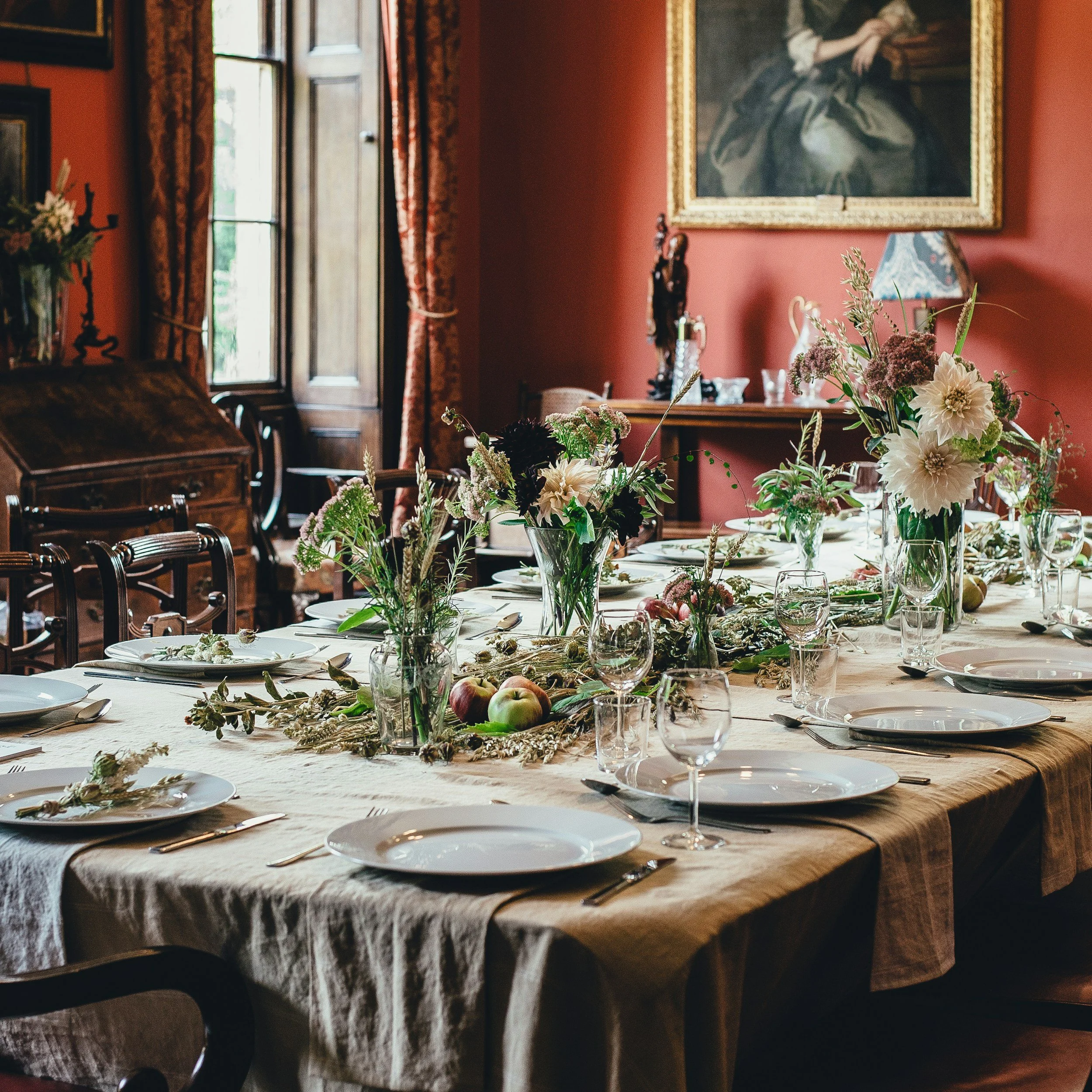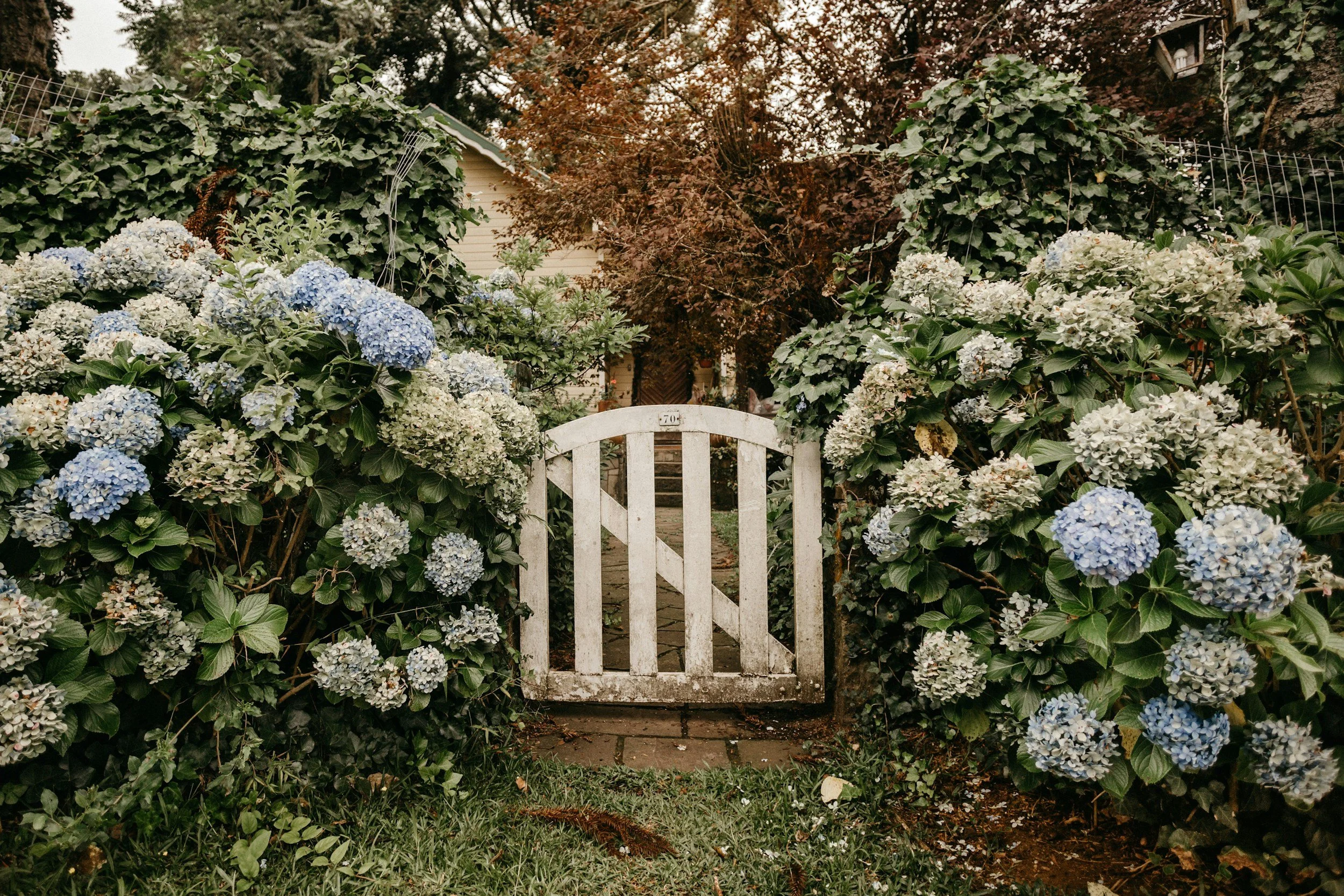Confessions in the Conservatory (#10)
Late July, 1912
The conservatory was quieter than I had anticipated when I settled into my usual seat. The sounds of the house beyond seemed to blur into the background, distant voices, the soft shuffle of servants passing in and out. Inside, there was only the gentle rustling of leaves in the humidity, the faint scent of jasmine in the air. My thoughts, too, were still, as though they had been held in check by the very stillness of the room, until I saw him.
Yates Everett stood in the doorway, his gaze trained upon me. I was acutely aware of the space between us, how it seemed to shrink with each second. It was as if he, too, had been waiting for something. Or perhaps simply for the right moment to speak.
“I had thought I might find Lord Bergamot in here,” he remarked, his voice rich and smooth, but with an undertone that I could not quite place. There was something about his presence, something unspoken, that made the air feel thinner, as though it was charged with a tension neither of us dared acknowledge.
“He’s late, still out on his ride, I suppose.” I replied, attempting to keep my voice as unaffected as the air between us. But even I could hear the faint tremor in my words. The space between us felt suddenly too small, and the quiet was too loud.
Yates paused, glancing around the room as though trying to make sense of the space before turning his full attention back to me. “Then perhaps it’s for the best,” he said softly, his voice shifting with a slight edge. "I always hope to find you, instead."
I froze, my pulse quickening, and I swallowed the words I wished to say. I had prepared myself for moments like these, where silence could do the talking for us. But this confession, however slight it may have seemed, struck a chord within me that resonated far deeper than I should allow.
“You always do seem to find me, don’t you?” I replied, forcing a smile that felt far too fragile for the weight of this moment.
He smiled, a small, almost imperceptible curve of his lips, but his gaze remained serious, intense. “I think it’s because I never have to search for you, Lillian,” he said softly, the use of my name a shock to my system. “You are always where I need you to be, even when I am not looking for you.”
The room seemed to shrink further, and I felt an odd, unsettling warmth settle over me. He said my name. Lillian. The simplicity of it, the intimacy, was enough to make my breath catch in my throat. I wasn’t sure I could bear it, that soft utterance of my name that held more meaning than any address of formality could.
“I am sure I do not know what you infer,” I managed, my voice trembling despite my attempts to remain composed. The words felt inadequate, faltering under the weight of what he had just said. His gaze lingered on me, and I wanted to look away, but I couldn’t. His eyes held me, and I couldn’t seem to escape their pull.
Yates took a step closer, and with it, the distance between us seemed to disappear, leaving nothing but that shared air, thick and laden with unspoken words. He leaned in just slightly, and for a moment, I felt as if the room had collapsed around us.
“I’ve been trying to find the words for a long time.” He confessed, his voice even quieter now, almost too intimate for the space between us. “But there is never a proper time, is there? No appropriate way to say what should not be said.”
I couldn’t answer him immediately. How could I? The weight of his words was too much, and I felt as though every word I might say would crumble before it could even take form. The space between us was filled with a deep, silent ache, one that I could feel in the very marrow of my bones.
“Perhaps we’ve spent too long pretending this isn't what it is,” he said. "Perhaps we’ve been too careful with each other, when what we both feel is so plainly there."
I wanted to reply, to deny it, to say that we couldn’t possibly be feeling what I knew we both felt. But I couldn’t. Not anymore. The silence stretched between us like a taut rope, both of us knowing we could not walk back from this moment.
“I wonder,” he continued, his voice softer now, almost wistful, “if I had met you before you were promised to another, if things might have been different.”
His words hit me with a force I didn’t expect. I wanted to deny it. To say something that would make this stop, make this moment, this confession, go away. But I couldn’t. I felt the truth of it, the truth of what he had said, and I could not deny how it felt to hear him admit what we both had already known but had never said.
“I do not know..” I whispered, but even as I said the words, I knew they were not true. I had known for months. And that was what made this so much harder, because we both knew what we wanted, even if we could not have it.
Yates sighed deeply, running a hand through his hair, his eyes searching mine. “But you see, I know that you do,” he said softly. “I think we both are suffering the truth of it all. And that is what makes it unbearable.”
I couldn’t respond. I didn’t know how to. His words settled around us like a blanket, suffocating, oppressive. The air was too thick with our shared awareness.
“I never wanted you to feel like this,” I said, my voice barely above a whisper. “I never wanted this to be something that hurt us both.”
Yates shook his head, his expression sad but resolute. “Perhaps I should have stayed away. Perhaps, it would have been easier if we had never crossed paths.” His words were soft but laced with pain, not an apology, but an acceptance that they’d crossed a line that could not be undone.
The conversation hung between us, fragile, like a thread pulled too tight. Neither of us spoke for a moment, and I wondered if we were both waiting for something, for the other to speak, for someone to interrupt, for this moment to end, but it didn’t come. The silence stretched on.
“Lillian,” he said, and my heart stuttered again at the sound of my name. The intimacy of it was overwhelming, and I flinched, not at the name, but at what it represented. Something too close. Something too much. I had never heard him say my name before this afternoon, and now it was impossible to pretend that we were still strangers.
“We can’t,” I whispered, barely able to find my voice. “Not now, not in the way we both want.”
Yates stepped back, as if retreating from the weight of what had been said. He gave me one last, lingering look, before turning toward the door.
“I know,” he whispered, his voice thick with emotion. “I know. But I had to confess it.”
For a moment, neither of us moved. Then, as if on cue, the door creaked open and a servant entered with a tray of tea.
“I beg your pardon, Milady,” the servant said, breaking the fragile tension. The world seemed to fall back into place, the weight of propriety settling between us once again.
Yates didn’t move immediately. He waited, his expression unreadable, as the servant placed the tray on the table beside me. The servant made to leave, casting a glance between the two of us, sensing the lingering undercurrent.
“I will leave you to your tea, Lady Bergamot,” Yates said, his voice soft but steady, almost reluctant. His words hung in the air, weighted with all that had been left unsettled.
The servant hesitated a moment longer before leaving, closing the door behind them with a soft click. Yates' gaze lingered on me, and I felt the words between us still hanging in the room, impossible to shake off.
Finally, with a sigh, he turned toward the door, and stepped through it.
“I’m sorry,” he said quietly, almost to himself, as the door closed softly behind him.
I was left alone in the stillness of the conservatory, the weight of his words hanging in the air like a fog I couldn’t shake.
I sat still for a long time, my fingers resting lightly on the delicate china of the tea cup, its warmth doing little to ease the chill settling deep within me. The silence stretched out, but it was not the same as before. Before, there had been comfort in the quiet, the kind that came with knowing where one stood. Now, I could feel the space between us more acutely than ever, as if it had grown wider, more impossible to cross.
Yates had left me with more than words. He had left me with a truth I had been fighting to avoid, a truth we both knew but had never spoken aloud until now. We could never be what we wanted. That much was clear. Yet, his admission, that quiet, vulnerable confession, still echoed in my mind, reverberating through every corner of the room.
“I had to confess it,” he had whispered. Had it been a burden, finally lifted from his shoulders, or did he too still feel the weight of it all? That we could not act on what we both felt. That we were trapped in a world where propriety and duty chained us, keeping us from what we both longed for.
I didn’t want to think about him. But I couldn’t stop. His words, his gaze, the way he’d said my name, they all swirled in my mind like a melody I couldn’t forget. I knew I should be angry, or cross, or even relieved that the tension had finally broken. But instead, I was left with a deep, quiet ache that I couldn’t name.
I had told myself, over and over, that I was content with the life I had, with my husband, with the quiet rituals that filled the days. But in the stillness of the conservatory, surrounded by the very flowers we had spoken of so many times, I couldn’t convince myself anymore.
The truth was, I had never been content. I had just been too afraid to admit it, afraid of the consequences, afraid of what it would mean if I allowed myself to feel the things I so carefully buried.
But Yates… Yates had forced me to see what I had been running from. And though it felt like betrayal, to myself, to Lord Bergamot, to everything I had built, a part of me couldn’t help but feel grateful for it. Grateful that he had seen me. Not just as the wife of Lord Bergamot, not just as a woman confined to the proper roles of society, but as someone who could still feel, still yearn.
I closed my eyes and leaned back in my chair, the soft hum of the house around me fading as I tried to process everything I had heard, everything I had felt. I wanted to pretend it hadn’t happened. To pretend I was untouched by it all. But I knew I couldn’t.
And yet, even as I tried to push the thought away, one truth remained: I would remember this moment. The way his words had lingered in the air, the way I had looked at him with more longing than I ever dared admit.
I would remember how it felt to be seen, truly seen, by someone who understood the hidden parts of me, the parts I had tucked away so carefully, so far from the reach of the world.
I didn’t know what would happen next, or how much longer I could live this way, torn between propriety and desire. The ache of it all was becoming unbearable. But in that moment, as I sat in the conservatory, I realized something I had known all along: I was no longer willing to remain invisible. Not to him. Not to myself.
But that did not mean I could be free. The truth was clear now, more than ever: I could not abandon what I had built, no matter the weight of my heart. Lord Bergamot, despite his many faults, had never truly hurt me in a way that could justify desertion. We had our own unspoken understanding, a life we had created together, one that, though perhaps less than what I had once dreamed of, was still mine. My duty, my station, the life I was expected to lead, had bound me tightly.
I had no choice but to face it.
I would never speak of this. I would never act upon it. But the truth of it had taken root in me, a quiet, unyielding presence that will whisper its reminder every time I cross the threshold of this conservatory. I could not erase it, and perhaps I no longer wanted to.
And so, I sat in the silence, letting it swallow me whole. I would keep up appearances. I would continue to play the role I had been cast in. But somewhere beneath the surface, there would always be this ache, an ache that would never go away, that would never be satisfied.
I closed my eyes, listening to the hum of the house beyond, and I let myself feel the weight of it, the sadness of a love that could never be.
But I would endure. I always had.
And I always would.
—L.B.
You Might Also Love…
Read all of The Violet Letters here:
Copyright Notice:
© 2025 Lady Bergamot's Library. All rights reserved.
This work is the intellectual property of Lady Bergamot's Library (Jessica Jones) and may not be reproduced, copied, pasted, or rewritten without prior written permission.
Links to this content may be shared, but the content itself may not be copied, republished, or distributed elsewhere.
All content on this site, including but not limited to text, images, and original works, is protected by copyright law.
































I was in fourth grade when I found A Series of Unfortunate Events. I talked about them on AIM with my best friend, devoured each new hardcover, and felt like someone finally trusted me with something strange and brilliant.